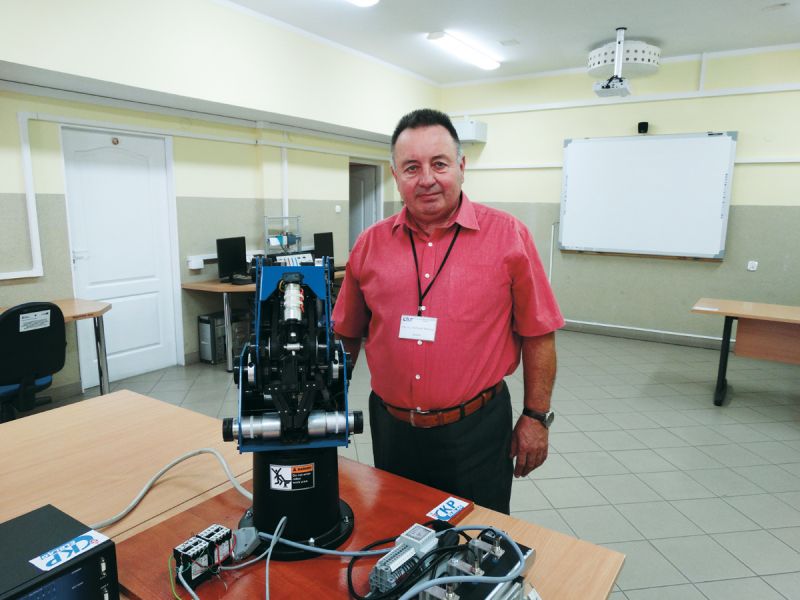Who will find employment in the Shared Services Centres sector?
International corporations are increasingly willing to establish their Shared Services Centres (SSCs) in Poland. This is partly due to high migration rates in the European Union and Eastern Europe, fuelled among others by safety issues and educational or employment opportunities. As a result, each year our domestic market is enriched with an inflow of new foreign candidates who are willing to settle down in Poland.
To some extent, growing numbers of candidates with foreign language proficiency seem to influence corporate decisions on starting a new SSC in Poland or on relocating another business area to existing SSC structures (as needed). The final decision to establish a new SSC or expand an existing SSC with additional business areas is made on the basis of a review of the labour market with respect to availability of candidates with required competences, their motivation and financial expectations.

A perfect candidate profile
Corporations tend to relocate business areas which do not require direct contact with customers or businesses in a given market. Usually, such areas include accounting and financial departments, customer service, Help Desk and HR services – all of them with a number of qualified positions on different levels, starting from junior specialists, through specialists, senior specialists, experts, coordinators, and ending with managers.
One common denominator of all these areas is the use of foreign language skills. Obviously, English leads the way, as it is commonly used in organizations, with any induction training, correspondence and internal communication conducted mainly in this language.
Apart from English, in most cases candidates are expected to have a fluent or near-native command of a second language (that is other than Polish) which will be their main working tool (phone and email interactions with company customers and employees in a given market, administrative tasks).
Once we know the areas supported by SSCs and their common denominator, we can answer the question: What qualifications must a candidate possess to successfully apply for a job at a Shared Services Centre? The profile of a perfect candidate may be broken down by soft and hard skills.
Hard skills include:
- Languages (number, proficiency level) – the more, the better. However, quantity may not prevail over quality, so for the employer to recognise a candidate’s command of a foreign language, it must not fall below B2 level (on a language competence scale adopted by the European Council).
- Higher education/courses/trainings – it is worth ensuring that they are appropriate for the profile of the job, for which the candidate applies.
- Experience – it does not play a decisive role in the case of starting positions, which mostly require other competencies. However, on a specialist level it is considered an additional advantage for an employee to possess experience in a similar position in an international working environment. It should be noted that when a required foreign language is more difficult to learn and when there is a limited number of candidates fluent in that language available in the labour market, experience tends to be considered of lower priority, and may come second to the candidate’s motivation.
- Knowledge of ERP systems – the most popular is still SAP, but other systems are also important (such as Oracle Database), including internal systems developed to meet the needs of specific organisations.
Soft skills include:
- Communication skills – mainly openness to interactions with others (regardless of their position), with a particular focus on the ability to operate in an international and multicultural environment.
- Creativity – this might include the ability to develop or search for unique solutions to streamline or automate processes.
- Work under time pressure – the ability to organise one’s working time, prioritise tasks and handle potential stress.
- Ability to adapt to an evolving (developing) working environment.
- Flexibility – including openness to relocation, as Shared Services Centres operate only in a few locations throughout Poland (such as Gdansk, Gdynia, Warsaw, Lodz, Krakow, Wroclaw).
- Availability – in terms of any business travel (related to process migration) or working overtime.
- Proactive attitude – taking initiative, getting involved in the life of a company and identifying oneself with one’s organisation.
To sum up, candidates possessing the abovementioned competencies should find it quite easy to get employment at a Shared Services Centre. It should be noted that employers want to keep staff turnover levels as low as possible. Much attention is given to positive team atmosphere, which fosters performance. That is why both candidate’s personality and motivation are taken into consideration when making employment decisions.
Marianna Świderska Consultant HRK SSC/BPO







